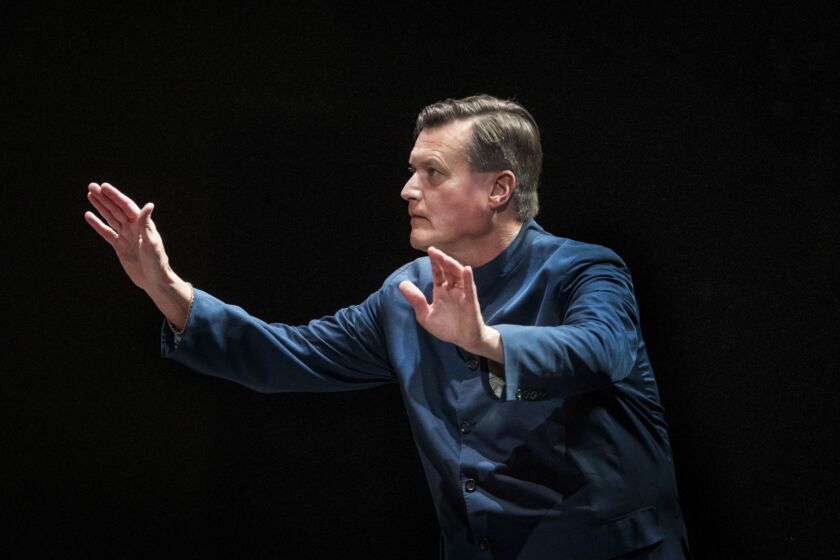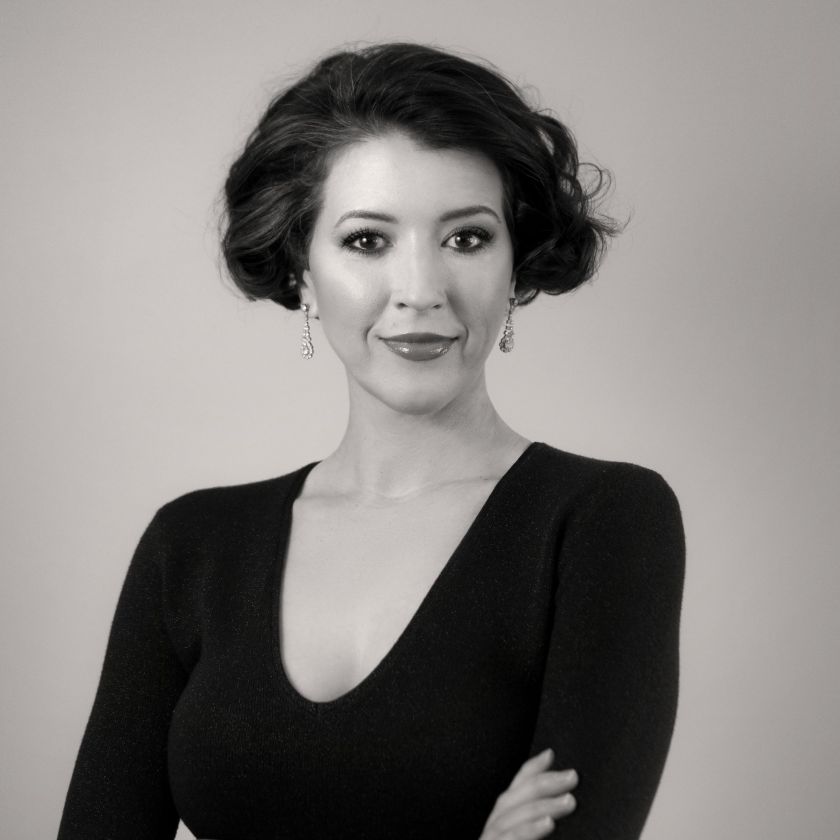Concert Performances
Öl auf Leinwand, 100 x 70,5 cm
Foto: © Dorotheum Wien
© Martha Jungwirth/Bildrecht, Wien 2023
Capriccio · Hamlet

Concert performances of Richard Strauss’ Capriccio open this year’s Salzburg Festival opera programme. Like few others, this opera, premiered in Munich in 1942, reflects upon the nature of its genre, circling a problem as old as musical theatre itself: the relationship between words and notes, poetry and music. Set in a French chateau circa 1775, Capriccio mixes the aesthetic debate about the advantages of the two art forms with the love rivalries between the poet Olivier and the musician Flamand, who are both courting the young, widowed Countess Madeleine.
The idea for Capriccio went back to Stefan Zweig, and even while working on the text, Strauss was aware of the unusual character of the new work: he told the conductor Clemens Krauss, who took the place of Joseph Gregor as co-author of the libretto, that he wanted to write “something quite unusual, a dramaturgical treatise […], a theatrical fugue”. It is no coincidence that the artificial, melancholically idealized rococo world into which the graceful conversation piece is embedded is modelled upon Salzburg’s Leopoldskron Palace, whose interior the Festival’s co-founder Max Reinhardt had given a new, neo-baroque design. When the work was written, the palace had already been Arianized by the Nazis. Strauss also gave the character of the theatre and stage director La Roche more or less clearly recognizable traits of Reinhardt, the man of the theatre driven into exile. Capriccio – which the composer considered the sum and finale of his operatic output – will be conducted by the Strauss specialist Christian Thielemann. He leads an exquisite ensemble of singers, including Elsa Dreisig, who most recently impressed Salzburg’s audiences as Giulietta in Bellini’s I Capuleti e i Montecchi. (26 and 31 July, 4 August)

The other opera in concert is the Shakespeare setting Hamlet by the French composer Ambroise Thomas. Thomas completed the work as early as 1863, but five more years passed until the world premiere at the Opéra in Paris. Was the reason that the composer – as reported by the contemporary press – could not find a singer he liked for the role of Ophélie, until meeting the young Swedish soprano Christine Nilsson in 1867? At the age of 24 and with a voice of crystal clarity, she was an ideal embodiment of the romantic ideal of the femme fragile. The decision to engage the great singer-actor Jean-Baptiste Faure for the ambivalent title role, oscillating between introspection and activism, caused Thomas to rewrite the original tenor role for baritone. Thus, the challenging main roles demand two singers of outstanding vocal and interpretational prowess. With the baritone Stéphane Degout, who has made a name for himself mainly in the French and Italian fach, and the brilliant coloratura soprano Lisette Oropesa, an ideal cast awaits you on stage at the Felsenreitschule. (16 and 19 August)
First published in the Festival insert of Salzburger Nachrichten 2024
Translation: Alexa Nieschlag
